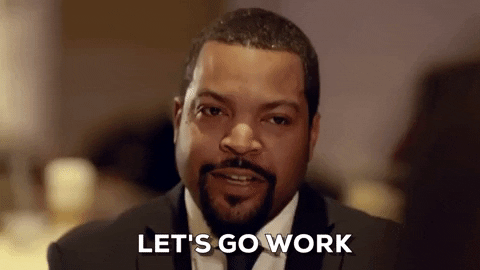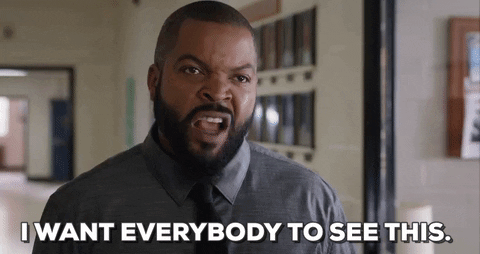87 Check-in Meeting Questions to Break the Ice (Cube)

“Check yo’ team before you wreak yo’ team”
Ice Cube’s iconic 1993 hit “Check Yo’ Self” embodies some words of wisdom that managers can take with them in the workplace: To avoid “wreaking” your team, you need to “check” in with your team.
Okay, so that’s not word-for-word what he said, but the message is there.
As a leader, finding the right balance between knowing what’s going on with your team and being too authoritative can be difficult (for both you and your team). But check-ins don’t equate to micromanagement or boring meetings. If you’re equipped with the right check-in meeting questions, your discussions will improve team dynamics, help people be more productive, and decrease turnover. This blog will give you 87 questions to make that happen.
What are check-ins?
Check-ins are meetings between managers and direct reports that focus on progress made on projects and assigned tasks. Depending on the type of check-in, these meetings occur on a weekly, bi-weekly, or monthly basis.

87 check-in meeting questions
Asking your teammates to share their experiences and insights about their job creates a powerful connection that builds a healthy workplace relationship. Here are 50 questions that’ll help guide your next check-in meeting.
General check-in meeting questions
Purpose: General check-in questions help get the conversation rolling. They allow team members to voice concerns that targeted questions may not provide the space for.
- What are you planning to work on this week?
- How can I support you with this project or task?
- What is your top priority this week?
- What is going well at work right now? What isn’t?
- Can you foresee any roadblocks that could prevent you from achieving your goals? If so, how can I help?
- What wins did you celebrate last week? Nothing is too big or too small!
- What are you looking forward to in these next couple of weeks?
- Are there any tools, resources, or support you need?
- How do you feel about your team?
- Do you feel supported by leadership?
Progress-related check-in meeting questions
Purpose: These check-in questions help you gauge how work is progressing. They also quickly identify potential problems or upcoming roadblocks so you can reassess your plan and expectations.
- How full is your plate right now? (Ask for a percentage!)
- What helped or hindered your progress during this project/task?
- How would you rate your current work-life balance?
- What’s something you would like to prioritize in the upcoming weeks? It can be work-related or personal.
- What’s your general feeling about the deadlines you’re working towards?
- When do you feel most productive?
- How can the company or I help you work in the ways that best suit your style?
- What’s motivating (or demotivating) you right now?
- How can we make you feel more motivated in your role?
- Are you receiving enough (or too much) feedback?
- In what ways do you like to receive feedback?
Goal-related check-in meeting questions
Purpose: Ensuring work is progressing towards quarterly objectives and company OKRs is of utmost importance. That’s why goal-related check-in questions are useful; they ensure everyone understands the strategy and is still on track.
- Do you have a good grasp of the company strategy and quarterly OKRs?
- What milestones have you hit?
- What has you worried about fulfilling goals? How can we change that?
- Do you have the tools and information you need to successfully reach your goals?
- Is there anything you need to stay productive? How can we make it happen?
- What feedback do you have to help improve our OKR progress overall?
- What have you seen that works well in terms of goal management?
- What initiative takes up most of your time at the moment? Do you need additional assistance?
Professional growth and development check-in meeting questions
Purpose: Keeping employees engaged and making them feel valued is critical to achieving goals and growing the company. Knowing how each employee would like to develop professionally helps maintain a healthy team and reduce attrition rates.
- What are your career goals?
- Where do you see yourself in 5 years?
- How can the company or I help you achieve these goals and aspirations?
- What area or skill would you like to develop further? How can we make that happen?
- What’s a talent you have that you don’t use at work? Is there a way to incorporate it into your workflow?
- Are you comfortable with how your role has changed? Is there something that you would like to bring back?
- What’s your favorite and least favorite part of your current role?
- Is there something you would like to see more (or less) of in your current role?
Remote or hybrid work check-in meeting questions
Purpose: Just because some employees are more productive working from home doesn’t mean they should be left out of check-ins. You can still ask similar questions but adjust them to apply to their situation.
- What are your biggest challenges with remote work?
- How could the company or I make your work-from-home experience better?
- Are there ways that we could adjust as a team to do remote work better?
- Do the company or I make you feel like a valuable player on the team?
- Is there something that works particularly well when working from home?
- What types of team-building activities would you like to see more or less of?
Personal check-in meeting questions
Purpose: Trust is the foundation of a healthy relationship. That means asking intimate questions that get you to know your teammates a little better. But remember, this doesn't mean inviting people to tell their deepest darkest secrets, but rather encouraging conversations that go beyond work progress and company life.
- What does your perfect workday look like?
- What does a horror workday look like?
- What makes you happy?
- What stresses you out the most?
- How do you like to receive feedback (preferred channel, when, and where)
- How don’t you like to receive feedback?
- What’s your preferred mode of communication?
- How can we detect if you’re stressed?
- What conditions are needed for you to live up to your full potential?
- How is your vibe killed? What demotivates you?
- What do you love talking about?
- What’s the best way to show appreciation for your work?
- What’s the best way to acknowledge you?
- What’s the characteristic you value the most in others?
- What’s the characteristic you are most proud of about yourself?
- How do you recharge?
- What are your personal goals?
- What are your professional goals?
- If you’re having a bad day, how can I help you?
- How do you measure success?
Check-in meeting questions to break the Ice (Cube)
Purpose: Sometimes silly questions can help teams clear their minds and get in the headspace to fully engage in meetings. They also allow you to get to know the creative sides of different people. You might be surprised!
- How do you treat yourself?
- If your team had a mascot, what would it be?
- What was the last thing someone thanked you for?
- What TV show represents your team the best? Why?
- What was the last thing you googled?
- What ice cream flavor should Ben and Jerry’s come out with?
- If you were a kitchen appliance, what would you be and why?
- What is your least favorite chore? Why?
- What movie or TV show can you binge-watch without ever getting sick of it?
- If you could be in any other profession, what would you choose? Why?
- If you traded places with a coworker, who would you choose?
- What’s the last song you listened to?
- How would you describe your personal style?
- If you could add a word to the dictionary, what would it be?
- What is your most used emoji?
- If you could only use one app on your smartphone, what would it be?
- What’s the best piece of advice you’ve ever given?
- If you could teach a class on one thing, what would it be?
- What is the best advice you’ve ever heard?
- What is the best perk you’ve ever received at a job?
- What actor would play you in a movie?
- What are two things you’re really good at?
- What team member would you like to get to know better?
These lists are meant to help you understand the types of questions you should ask your team. You can tailor the check-in questions based on your roadmap, goals, and company culture. See what your team responds to best!
Check-in questions dos and don'ts
Great managers not only ask the right questions but also put in the work to encourage positive change. In doing so, you’re sure to help build a workplace culture that everyone wants to be a part of. Think about these do’s and when planning your check-in questions.
Yes, do it!
Stay open-minded: As a manager, you have pretty good eyes for what’s working and what’s not. But teammates offer a unique perspective on the systems you think you know. Remain unbiased and level-headed when receiving feedback, so your team feels comfortable coming to you with their troubles.
Create a safe space: Since check-ins are an opportunity to raise concerns, you need to create a safe space of openness and honesty where teammates feel comfortable talking to you about their genuine thoughts.
Be real: Ideally, check-ins help you adjust work in a way that benefits your team the most. Of course, giving a team member exactly what they want isn't always possible, but a compromise almost always is. But it’s always better to be realistic (but still compassionate!) then promise changes that are out of your capacity.
Use smart tools: Check-ins shouldn’t be a series of standalone meetings. It’s critical that the themes discussed are pondered, returned to, and eventually settled. A tool like Collato, to enable this process is vital. Meeting information is accessible to you and your teammates on one platform, allowing both parties to record, visualize progress, goals, and outcomes.
No, don’t do it!
Don’t be too formal: Check-ins shouldn’t be something to fear or dread; it’s more of an informal, yet constructive, conversation between you and a teammate. Remember that this isn’t an opportunity for you to give orders, discipline for poor performance, or check-off boxes. It’s rather a chance for you to listen, understand, and find new approaches to work.
Don’t exclude anyone: Even if your team does great work and seems motivated and engaged, it’s still important to check in on people. Make sure to hold meetings on equal ground; it’ll keep everyone happy and reduce attrition.
Don’t ask if you don’t act on it: Scheduling meetings and preparing the right check-in questions is a great first step, but the real value comes from what you do with the information you’ve received. Make sure you acknowledge and act on your team’s suggestions, feedback, and advice. Because “the worst thing you can do about a situation is nothing.”
Straight outta Collato
If you want to level up your meetings, Collato makes check-ins an easy and joyful routine.

Verbal status updates can be helpful within smaller teams, but as your organization grows, it becomes harder to connect ideas and goals across large teams. For example, if you verbally update your company on your ongoing tasks, there is a high probability that by the end of the day, most people will forget what you said. So as your team grows, so should your update methods.
To cut down on time spent in meetings, your team can use Collato to check status updates, ask about progress, and any other questions they might have. Meanwhile, your Slack stays quiet.
So now that you know the value of check-ins and the types of questions to ask, in the wise words of Ice Cube, “drink some coffee, put some gangsta rap on, and handle it.”

Iced with the hard questions




